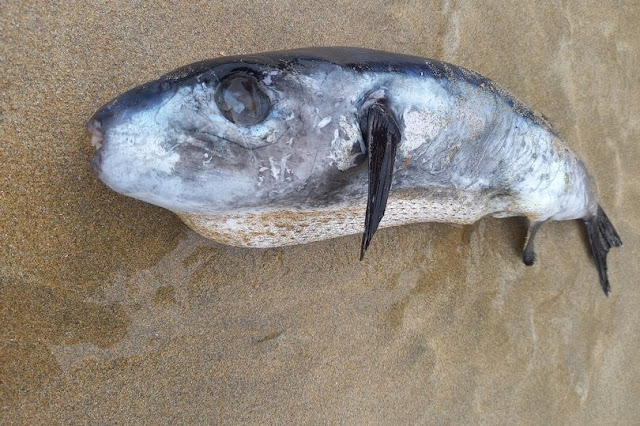A dead fish spotted on a beach in Cornwall has been identified as a highly venomous oceanic pufferfish.
Constance Morris from Penzance, discovered the unusual find when she spotted some gulls pecking at a fish on Towan Beach while on a family holiday in Newquay. Being someone who records dead marine animals for Cornwall Wildlife Trust's Marine Stranding Network, she felt she had to investigate.
She told Cornwall Live: “As I walked up to the fish I instantly knew it was an unusual find - it's a bit under a foot, sliver back, flabby white underside, stubby face which concealed it's most noticeable feature, its beak. None of our local fish have beaks and they are usually found on things like coral-eating fish, so I knew it was something a bit more tropical.”
“I didn’t know what this fish was, but I've found odd fish before and know these animals can be important and of interest to scientists, so being ever ready to scoop something unpleasant off the beach I bagged it up and put it in my backpack.”
Puffer fish known scientifically as Lagocephalus lagocephalus, contains a toxin 1,200 times more poisonous than cyanide.
It is highly toxic and indigenous to the Pacific, Atlantic and Indian oceans as well as the Sea of Japan.
In recent years, there has been a surge in its distribution throughout the Mediterranean Sea though it is still rare in British waters.
Matt Slater, a marine conservation officer with the Cornwall Wildlife Trust, verified it was an Atlantic oceanic puffer and said he had had only a handful of records of the species washing up. “They can produce toxic slime so they’re best to handle with gloves. Like all puffers they produce tetrodotoxin which is dangerous - especially if eaten,” he added

Comments
Post a Comment